Corridor of Mirrors (Terence Young, 1948)
Sep
3

Mifanwy (Edana Romney) anachronistically smoking a cigarette. DP: André Thomas.
mystery
“Everything is rotten. Decadence is everywhere. Why fight it?”Les créatures [The Creatures] (Agnès Varda, 1966)
Aug
29

Mylène (Catherine Deneuve) and Edgar (Michel Piccoli) Piccoli playing checkers at a small table. DPs: Willy Kurant, William Lubtchansky & Jean Orjollet.
“Well, there are more ways than one of getting close to your ancestors. Follow the old road, and as you walk, think of them and of the old England. They climbed Chillingbourne Hill, just as you. They sweated and paused for breath just as you did today. And when you see the bluebells in the spring and the wild thyme, and the broom and the heather, you're only seeing what their eyes saw. You ford the same rivers. The same birds are singing. When you lie flat on your back and rest, and watch the clouds sailing, as I often do, you're so close to those other people, that you can hear the thrumming of the hoofs of their horses, and the sound of the wheels on the road, and their laughter and talk, and the music of the instruments they carried. And when I turn the bend in the road, where they too saw the towers of Canterbury, I feel I've only to turn my head, to see them on the road behind me.”A Canterbury Tale (Michael Powell + Emeric Pressburger, 1944)
Aug
27
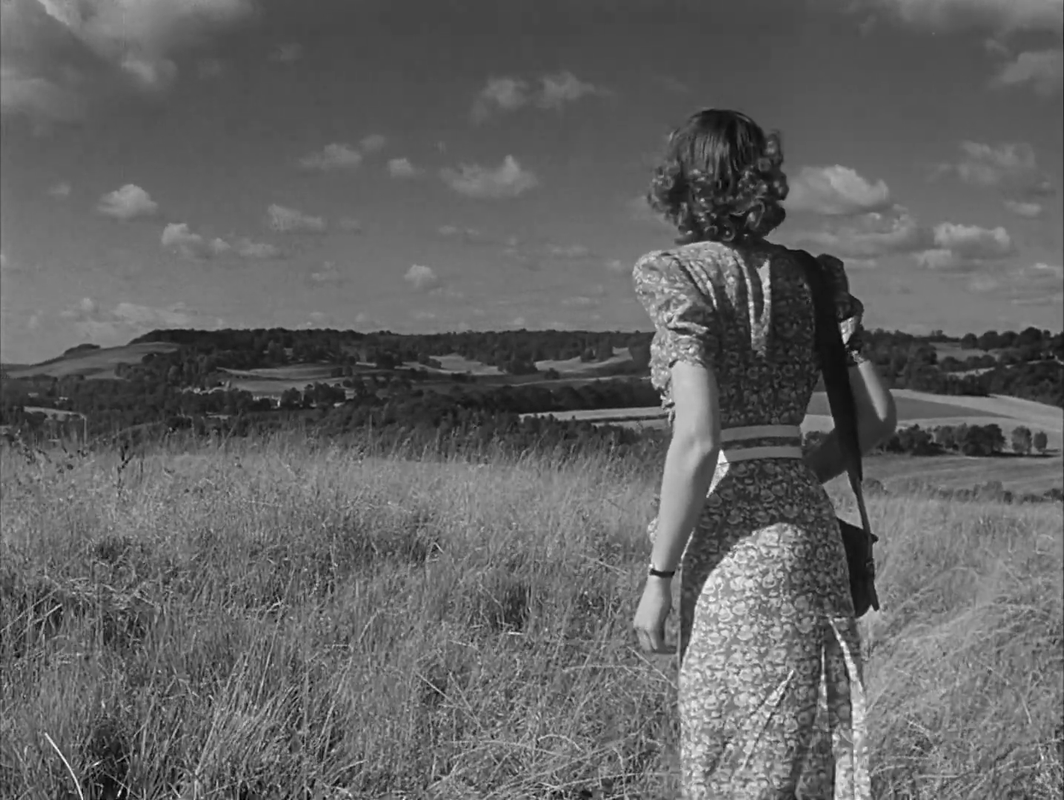
Alison (Sheila Sim) looking out over the rolling hills of Kent with the Canterbury Cathedral somewhere out there. DP: Erwin Hillier.
– Thomas Colpeper, JP
“It is vital to be photogenic from head to foot. After that you are allowed to display some measure of talent.”
Les Vampires [The Vampires or, The Arch Criminals of Paris] (Louis Feuillade, 1915/1916)
Aug
24
black
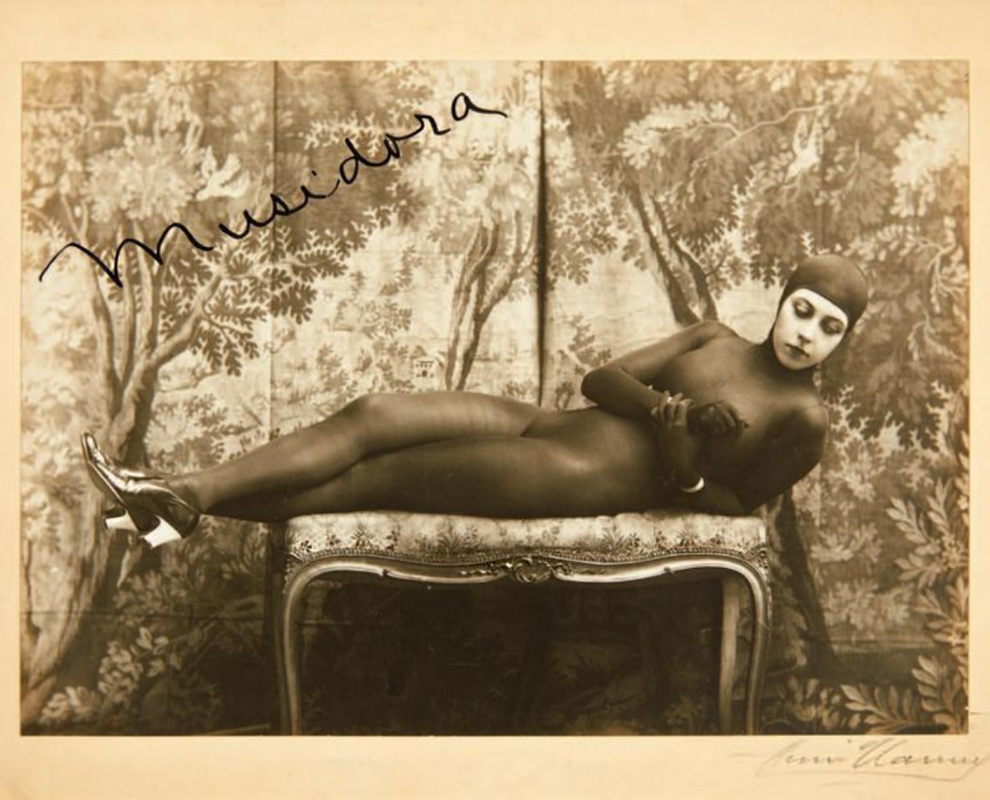
A signed promotional photograph of Irma Vep (Musidora) in her iconic black catsuit. DPs: Georges Guérin & Manichoux.
Black, in food or fashion*
– Musidora
Possibly the first, and definitely the most, iconic catsuit in cinema is worn by Musidora as Irma Vep in Les Vampires. Skintight and scandalous, Musidora's screen presence in the serial further cemented the popularity of the vamp and set the scene for many man-eaters to come.
* the Bales 2025 Film Challenge for August is not date-related but lists, for the most part, the colours of the rainbow.
“I first noticed it in Spring last year. […] It was from [my home] that I first saw it—its crest protruding over the roofs on the other side of the road. Surprised that I hadn’t noticed it before, I wondered what it was and then forgot about it for several weeks.” The Black Tower (John Smith, 1985—1987)
Aug
22
black
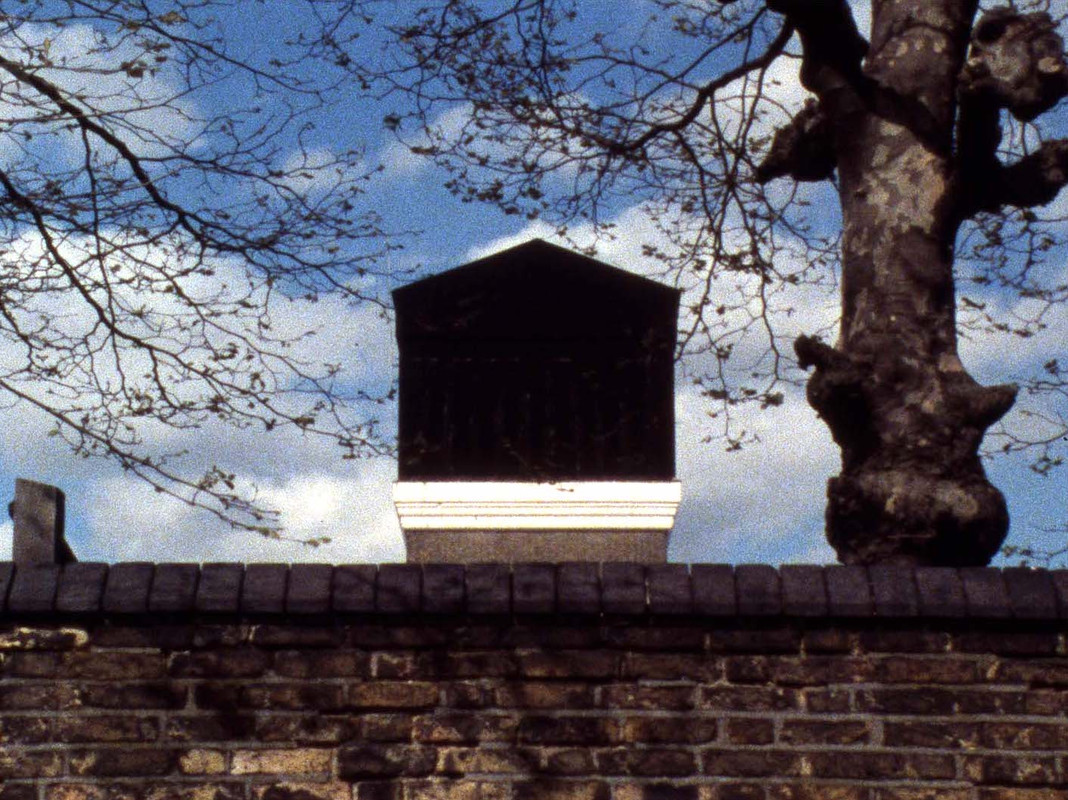
The black tower, visible from behind a brick wall (via)..
Black: a building or structure*
– narrator
A man becomes aware of a formerly unnoticed black tower. Surely it's nothing, yet as the weeks pass, its looming presence takes over.
The black tower was a real structure, first noticed by filmmaker John Smith when he moved to East London. The building, actually the upper part of a hospital's water tower, was painted pitch black, and on sunny days appeared to be a cutout in the sky. By framing the shots in such a way that only part of the surroundings is visible, and editing them in a narrative framework, Smith creates a new context suggesting movement. This style of montage called creative geography, or artificial landscape, was developed by Lev Kuleshov and enables filmmakers to expand existing material and narrative into something that usually is only available to prose poetry.
* the Bales 2025 Film Challenge for August is not date-related but lists, for the most part, the colours of the rainbow.
“Is it the form of the clouds, or the tints of the sky, or the colours of the surrounding objects which are so changeable, which have troubled my thoughts as they passed before my eyes? Who can tell?” Le Horla [The Horla] (Jean-Daniel Pollet, 1966)
Aug
19
violet
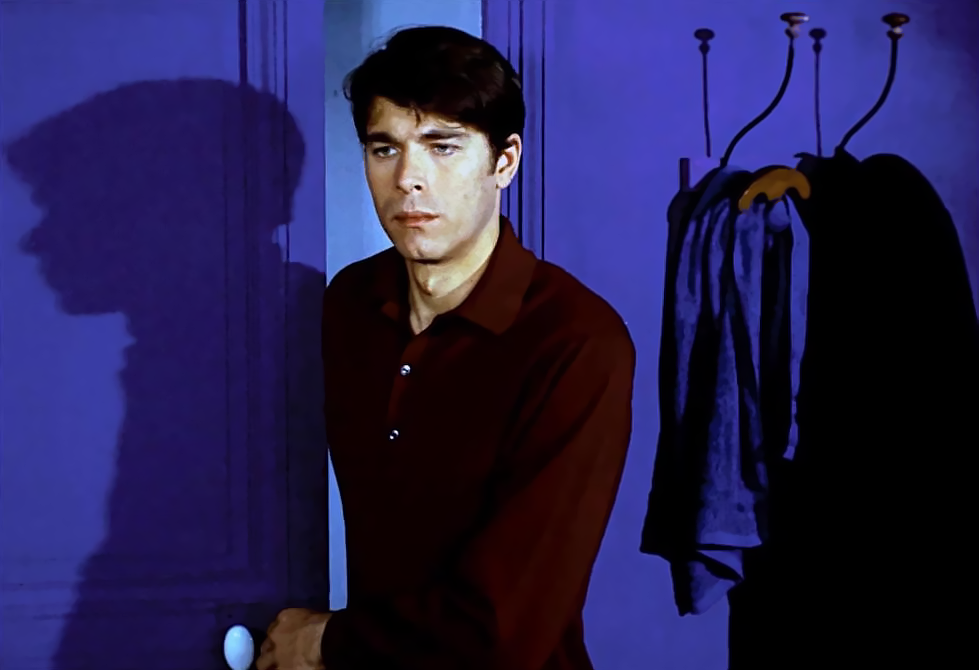
The narrator enters a violet-blue room via a lavender-purple corridor (via). DP: Jean-Jacques Rochut.
Violet: a building or structure *
– Guy de Maupassant, Le Horla, 1887 (via)
Objects and rooms have distinct colours ranging from the deepest blues and violets to a pale lavender, a muted silver and shocks of yellow. The usage of colour in Le Horla is striking throughout and reminds me of how Van Gogh's paintings became increasingly colourful as his madness enveloped him.
* the Bales 2025 Film Challenge for August is not date-related but lists, for the most part, the colours of the rainbow.
“Eight bones has the carpus, five the metacarpus, fourteen the phlanges, all in all, all in all, twenty-seven all in all. Abracadabra.”The Beast with Five Fingers (Robert Florey, 1946)
Aug
15

Hilary Cummins (Peter Lorre). DP: Wesley Anderson.
– Donald Arlington
“Matto, caldo, soldi, morto… girotondo…”Vergogna, schifosi!… [Dirty Angels] (Mauro Severino, 1969)
Aug
4
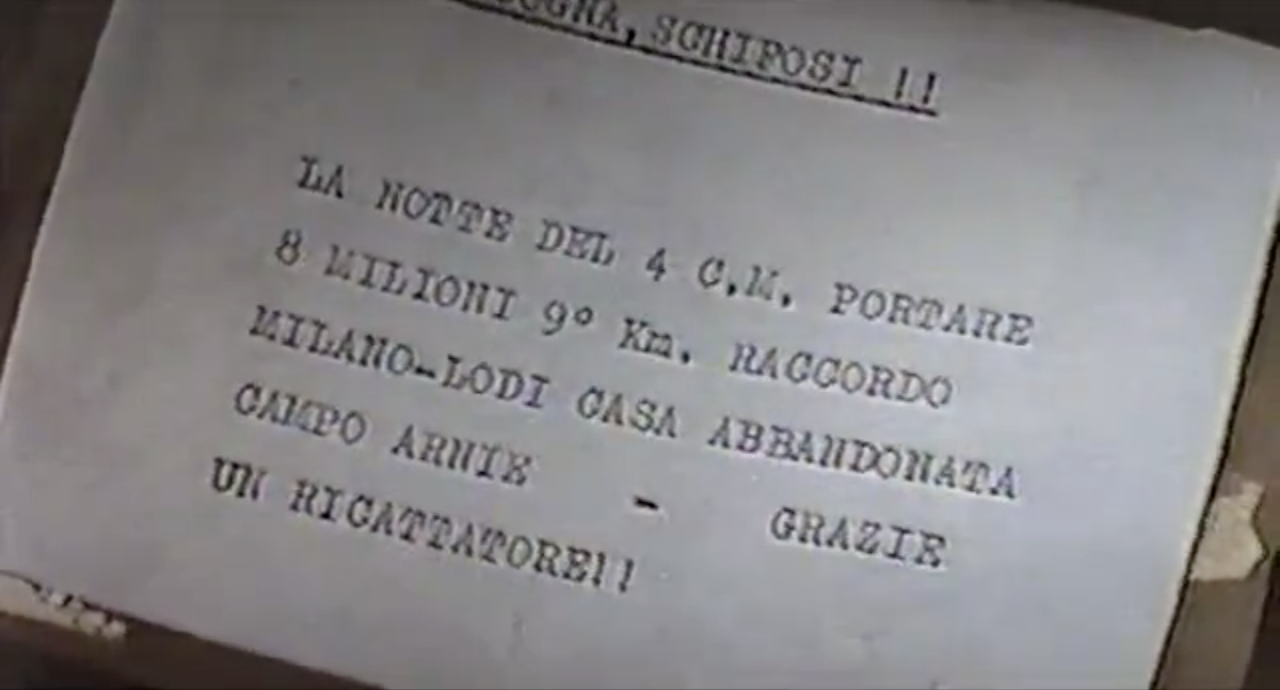
A typed note reads VERGOGNA, SCHIFOSI !! LA NOTTE DEL 4 C.M. PORTARE 8 MILLIONI 9° Km. RACCORDO MILANO–LODI CASA ABBANDONATA CAMPO ARNIE – GRAZIE. UN RICATTATOREI !. DP: Angelo Lotti.
While the month is never explicitly stated, there's mention of August traffic jams.
“On the night of July 25, 1958 I killed Ladislaw Zukarevitch, antique dealer, my mentor, my master in the art of polishing diamonds, my tutor at Warsaw Theological School.”Les trois couronnes du matelot [Three Crowns of the Sailor] (Raúl Ruiz, 1983)
Jul
25
1958
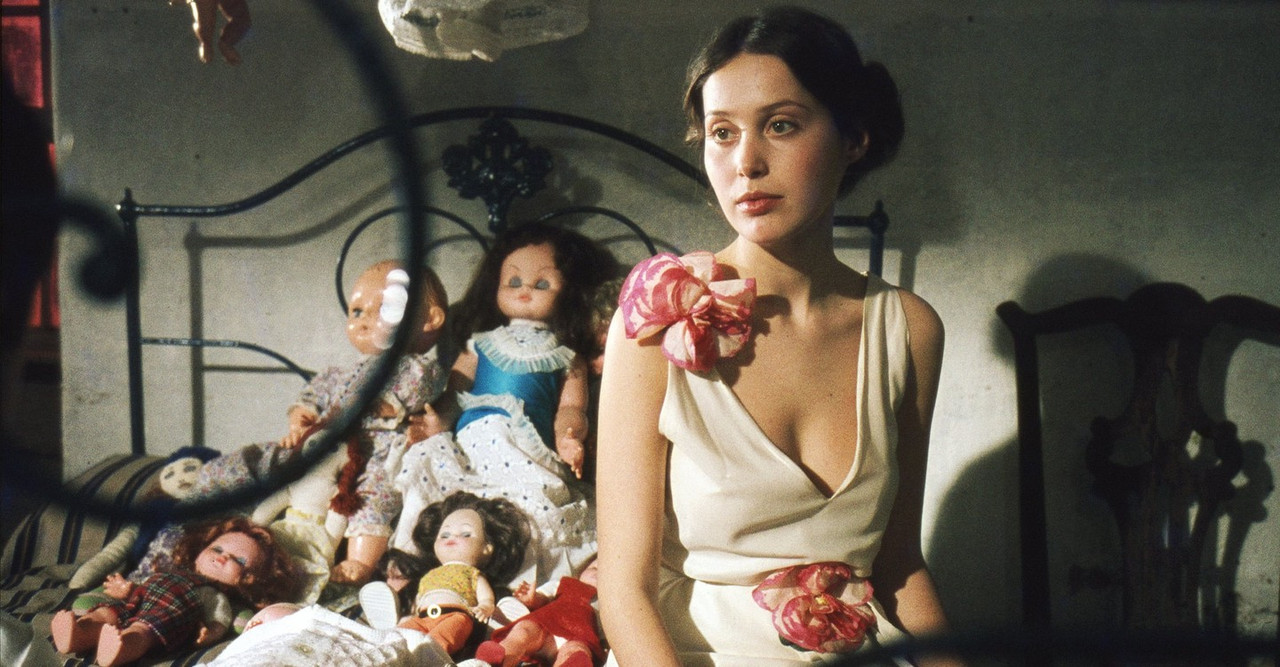
Prostitute María (Nadège Clair) sitting on her bed. The bed is covered in dolls. DP: Sacha Vierny.
– the student
“On the bus, the air was so thick, he felt woozy. A wailing infant shook with tears and the woman beside him reeked with the stink of cheap perfume.” 野良犬 [Nora inu / Stray Dog] (Akira Kurosawa, 1949)
Jul
14
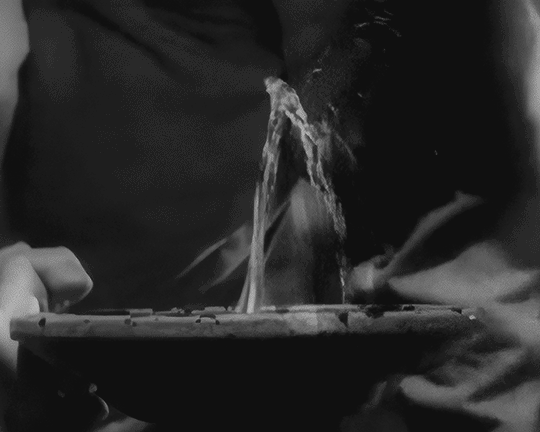
A sweaty man in uniform drinks from a water fountain like a dog (via). DP: Asakazu Nakai.
Someone enjoys a drink or beverage*
– narrator
On a sweltering summer day, Detective's Murakami's Colt gets stolen on a crowded bus. He must delve deep into the sticky sweaty seedy underbelly of Tokyo to retrieve it.
* the Bales 2025 Film Challenge for July is, for unknown reasons, mostly not date-related and follows some sort of vacation narrative.